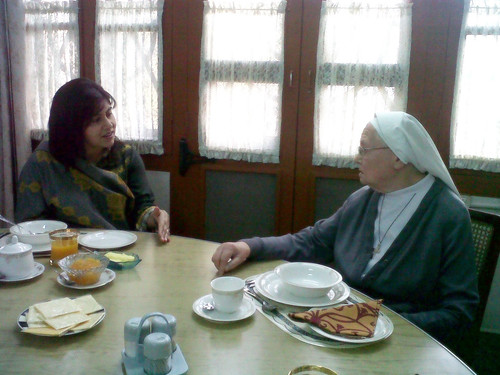18th January 2012
Freedom of Religion or Belief

Understanding religion is fundamental to our comprehension of the world in which we live. It is especially necessary for diplomats as they seek to apply their nation’s foreign policy around the world. Globally – though Western Europe is perhaps an exception – the trend, to put it crudely, is towards “more” religion rather than less. Respect for the religious belief of others, therefore, is not only a human rights issue. It is a key element in the good management of the relations between states and peoples.
It is therefore right that governments seek to promote freedom of religion or belief not only at home, but in their foreign policies, whilst recognising local sensitivities and being respectful to local traditions. The recent visit of British Cabinet Office Minister Baroness Warsi to Pakistan showed that, contrary to more pessimistic views, it is possible to engage openly and sensitively on the issue even in the most complex of realities.
On 13 January, Baroness Warsi – who is Muslim and the first Muslim to sit in the UK Cabinet – visited a Christian school in Karachi, the Catholic Archbishop of Karachi and the Edhi Foundation. Her visit followed her promise to the late Shahbaz Bhatti, Pakistan’s former Adviser to the Prime Minister on Minorities, before his murder last year. With the Archbishop, Baroness Warsi learned that Christians encountered few difficulties in Karachi, but in other parts of the country, especially Punjab, there were problems that needed attention. Baroness Warsi also took the opportunity to praise the work and vision of Edhi Foundation founder, Abdul Sattar Edhi, who, through his faith has set up one of the largest ambulances services in the world and takes in and cares for thousands of abandoned children each year.
At the Convent School, Baroness Warsi met two of the Irish Nuns, Sr. Berchmans and Sr. Mary. Sr Berchmans has spent the last 58 years teaching Christian, Muslim and Hindu girls, enabling many of them to go on to great things. One of her most famous students was Benazir Bhutto, the late Prime Minister of Pakistan. The story of Sr. Berchmans and Sr. Mary, and many more like them, is another facet of inter-faith relations in Pakistan and one we don’t hear enough about. It is about witness and the witness of one faith to another. It has been happening for decades.
The Ministerial visit to Pakistan dealt, of course, with many “classic” foreign affairs issues, including talks with government officials and trade promotion. But the focus on inter-faith dialogue and relationships was a key element of the programme. As a Muslim visitor to Pakistan, Baroness Warsi was able to highlight in a positive way the contribution of the Christian community and other minority groups to development within the country. Religion is an emotive and sensitive issue in many parts of the world. But by treating religious belief with respect and seeking to understand realities “on the ground”, the visit showed that it is possible to overcome ignorance and promoting the importance of dialogue in ways that unilateral declarations and ringing statements do not always achieve.